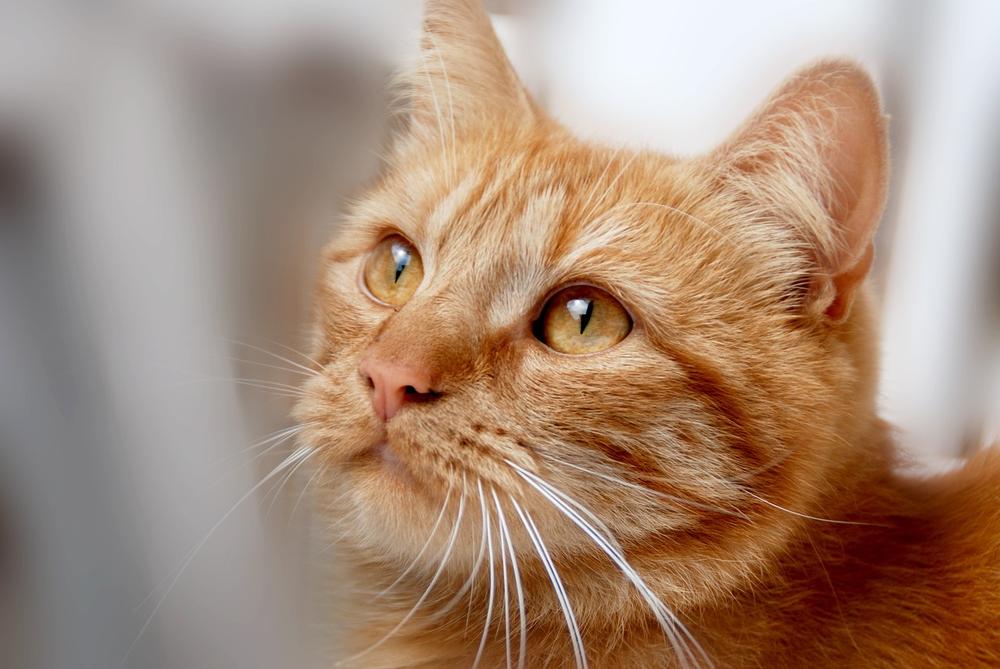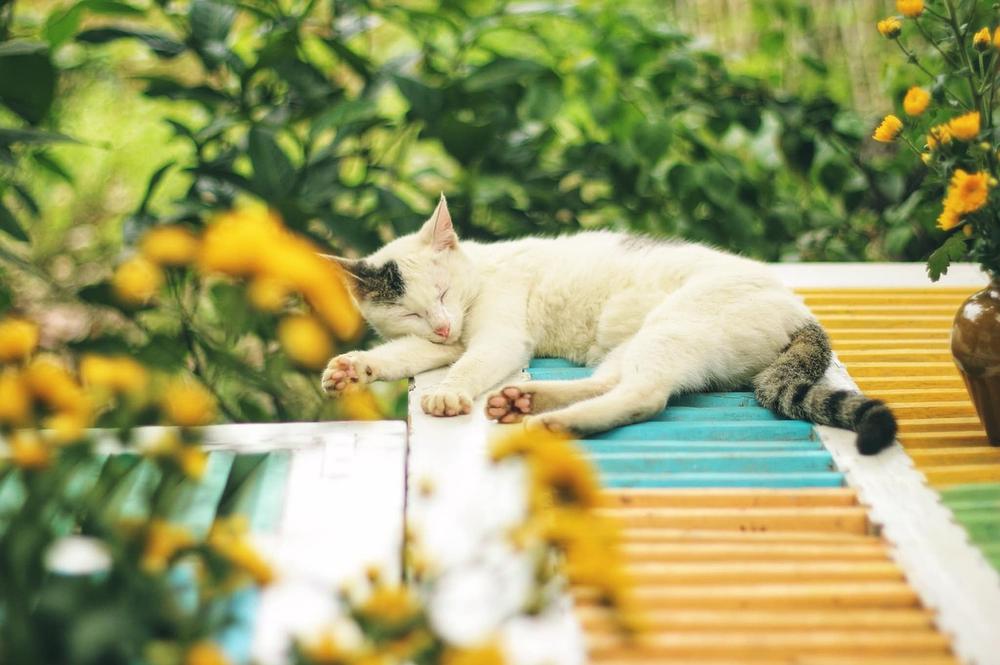My Cat Hisses at My Husband: Everthing You Need to Know

Is your feline friend playing referee in a bitter battle of wills?
Frustrated by the strained relationship between your cat and husband? 😾
You're not alone.
Let's dive into the tangled world of feline-human dynamics and find some answers together.
Ready?
Let's begin.
Possible Reasons Your Cat Hisses at Your Husband
If your cat hisses at your husband, there could be a few reasons why:
- Maybe the cat's just not used to all the extra commotion and movement happening suddenly.
- You know how cats are - they like to protect their turf. So, he might be hissing because he sees your husband as an invader in his territory.
- Sometimes weird smells or if the cat thinks your husband is a stranger, it can set off the hissing.
- Weird as it sounds, some cats are just picky about who they like, especially when it comes to dudes or guys with facial hair.
- Here's what your husband needs to do: approach the cat nice and easy, no sudden moves or loud noises that could piss him off.
- To get buddy-buddy with the cat, it's all about building trust. Give him treats, playtime, and gentle pets so he starts to see your husband as a good thing.
- The kitty also needs some space and time to chill out on his own terms.
- And hey, slowly let the cat sniff around your husband's stuff to get familiar with his scent.
Listen, figuring out why your cat hisses is the first step to making everyone happy under one roof with your husband and your furball. 😺

And here's my recommendation: if you want to dig deeper into cats' huffing behavior and uncover the true reasons behind it, look no further than my enlightening article, Why Does My Cat Huff.
Inside, I share valuable insights and expert advice that can help alleviate your concerns and give you a better understanding of your feline friend's emotions.
So, take a moment to check out my guide, and let's decode the mysterious language of feline huffing together.
Understanding Why Your Cat Hisses at Your Husband
Here's what you need to know when your cat hisses at your husband:
- Cats hiss when they feel defensive, scared, irritated, or in pain. Forget about jealousy or grudges.
- You gotta respect personal space. Make sure your husband doesn't invade the cat's safe areas and lets them come to him on their own terms.
- Hissing can happen because of invading safe spaces, unfamiliar smells or sounds, mistreatment, changes in routine or surroundings, illness, or pain.
- Cats have favorite people based on how well they communicate and how safe and comfy they make them feel. They're like bodyguards for their owners.
- Cats get uncomfortable with disruptions in their routines, like being loud or causing a ruckus. These things mess up their environment, y'know.
- If you understand what your cat prefers, you'll start noticing patterns in who they favor.
- Just give your cat some time to adjust if they hiss at your husband. It might take weeks for their routines to go back to normal.
You can establish a tranquil and comfortable space for both your spouse and feline companion by adhering to these suggestions.
Signs Your Cat Is Feeling Threatened
An elevated tail position is a sure sign that your cat is feeling threatened.
The sight of an erect, puffed-up tail is a clear warning that your feline friend is on guard and ready to defend themselves.
To prevent the situation from escalating, it's best to slowly retreat while avoiding direct eye contact with your furry companion.
Hissing is another telltale sign that your cat is experiencing fear or discomfort.
This fierce sound acts as a signal to other cats, warning them to steer clear or avoid encroaching on their territory.

By paying close attention to your cat's body language, particularly their eyes, you can detect early indications of unease before they resort to hissing.
And if you find your cat hissing, don't worry, there's a simple explanation.
Sometimes, our feline friends can seem threatening when they hiss, even if they're still friendly.
Understanding why they exhibit this behavior can help put your mind at ease.
That's why I wrote a helpful guide called Cat Hissing but Friendly.
In this article, I delve into the reasons behind a cat's hissing, allowing you to better understand and alleviate any concerns you may have.
Trust me, you won't want to miss out on this valuable resource.
Tips for Introducing Your Cat and Husband Slowly and Positively

Here's how you can introduce your cat to your husband smoothly:
- Get your husband's scent on a t-shirt and leave it near the cat's favorite spots as a gentle introduction.
- Whenever your husband is around, offer some of the cat's favorite food to create positive associations.
- Don't push the cat onto your husband's lap – let them come together slowly to prevent any scratches or attacks.
- Have your husband rub a clean sock on his cheek to help the cat get used to his scent.
- Have your husband take over feeding duties for the cat, doing it multiple times a day for friendly contact and positive experiences.
- Introduce the cats visually using baby gates stacked up, ensuring non-aggressive reactions.
- Instead of punishing the cat for hissing, reward good behavior to encourage a calm environment.
- Keep a consistent routine because cats love their habits like we do.
- Give the cat space and control over interactions, letting them approach at their own pace.
- If there have been changes to the routine, try going back to the previous one for comfort.
Your cat and your husband will develop a positive bond over time if you adhere to these suggestions.
Building Trust Between Your Cat and Your Husband
To build trust between your cat and husband, follow these 12 helpful tips:
- Establish a consistent routine for feeding, playing, and grooming.
- Understand that cats may have favorites, causing discomfort with other family members.
- Actively participate in activities to strengthen the bond.
- Spend quality time with the cat by engaging in play sessions.
- Feed the cat regularly to provide attention and build trust.
- Avoid sudden changes to the cat's routine to prevent anxiety.
- Be patient as trust takes time to establish.
- Don't rush interactions like stroking - let the cat decide when it's comfortable.
- Allow the cat to choose when to cuddle with your husband.
- Introduce more people into your home to enhance socialization.
- Understand how cats show affection and reciprocate it through quality time.
- Remember, patience is essential throughout this process.
By adhering to these procedures, you can encourage a solid connection between your feline companion and spouse.

And now, let's turn our attention to another important aspect of understanding your cat's hissing behavior - ensuring their health and well-being through regular veterinary checkups...
Addressing Medical Issues that May Affect Your Cat's Behavior
You gotta take your cat to the vet from time to time in their carrier.
No one likes going to the doctor, but you must check for any pain or discomfort that might be making your cat hiss like crazy.
Check out these medical issues that could be behind your cat's behavior:
- Bad teeth can put anyone in a bad mood, even cats. If your cat hisses when eating or looking into their mouth, get their dental chompers checked.
- Just because they're not complaining doesn't mean your cat is moving with ease. Arthritis can cause pain, especially in older cats.
- Certain neurological conditions can mess with your cat's brain wiring. It's no fun for anyone involved.
- Your cat's hissing might be linked to an overactive thyroid gland. Not cool, little buddy.
So, if your cat is hissing during handling, especially as they age, don't be a lazy cat owner. Take them to the vet ASAP.
Once you address those physical problems, your cat will feel better and stop hissing like they're trying out for a metal band.
Improving Cat and Husband Relationship: Final Steps
Key Takeaways:
- Cats may hiss at other pets or new individuals due to their territorial nature and love of routines.
- Hissing can be triggered by surprising smells, such as citrus or a dirty litter box.
- Cats may hiss if the husband has the scent of a rival cat, so cleaning off the area may help.
- Jealousy towards new family members or boyfriends can cause anxiety in cats.
- Changes in routine or perceiving the husband as an intruder can lead to hissing.
- Some cats have preferences for certain genders, so they may dislike men or men with beards.
- Hissing stems from fear, confusion, and discomfort, not jealousy.
- Understanding a cat's body language and early signs of discomfort can help prevent hissing.
- Slow and positive introductions can help cats become familiar with the husband's presence.
- Giving the cat space, control, and a consistent routine is important for their well-being.
- Building trust takes time, patience, and actively participating in activities with the cat.
- Addressing any medical issues that may cause hissing is crucial for the cat's well-being.
And that wraps up today's article.
So, you've made it to the end of my blog post! I'm eager to hear what you think. I always put in a ton of effort to create comprehensive and helpful content for my readers. It's definitely time-consuming (but in a good way!) so I would be incredibly grateful if you could take a moment to click on any of the social sharing icons to share this blog post with others. Thank you so much!
Talk soon,
-Sarah Davis